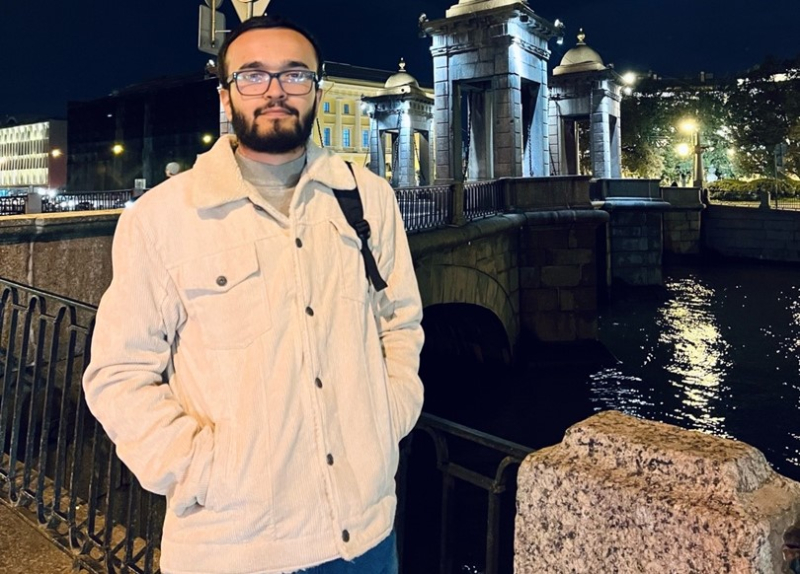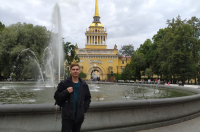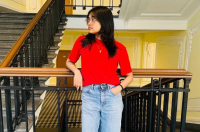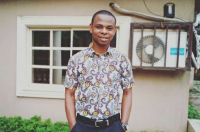Thank you for joining us. Tell us a little bit about your country. What are some of your favorite things about it?
As Kazakhstan is my home, everything there is my favorite. However, I particularly love the mentality and culture of its people. The Kazakhs are kind and sympathetic; they never miss their chance to help those around them.
Do you think you also carry this trait?
I’d love to think that I do, but it’s hard to be objective when evaluating yourself.
Do you have any favorite traditions?
The first thing that comes to mind is Nowruz – it’s a holiday celebrated on the spring equinox. I think in Kazakhstan, it is loved more than the New Year. There is no Christmas tree or Santa Claus, no; people cook at home and visit each other. They ask for forgiveness and forgive. It’s a day that you try to spend with family. This year, I am not planning to celebrate it, but maybe I’ll visit my friends and ask them to forgive me if I did something wrong.
It sounds like a very warm holiday. Are you planning to cook something?
I don’t think I’ll be cooking myself, although there is a traditional Nowruz dish I really love called sumanak. It’s something like condensed milk, but it’s made from wheat.
Do you miss Kazakhstan? Is there something that you do to cope with that?
Actually, I can’t say that I miss home, because the people here, their mentality is similar to that in my home country. That’s why I don’t feel like a foreigner here. So, of course, I miss my parents and my relatives, but there is no overbearing sadness that I need to distract myself from.
I see, thank you. Let’s talk about academics now. How did you decide to study in Russia?
Last May, my university welcomed a guest lecturer, Dr. Rashid Valiev, a Russian researcher who works in Finland. He specializes in computational chemistry. I was recommended to attend his lectures by my supervisor.
So, one day I approached Dr. Valiev and asked for his advice about my future career. He didn’t name any particular universities, but he told me I should focus on my IT skills if I wanted to work in computational chemistry.
After that, I started searching for universities online, with two results: ITMO and Bristol University in the UK. I applied to both and on the day of my graduation I received offers from both universities. I weighed my two options with IT in mind, and it turned out that ITMO’s program (Infochemistry) had more to offer in this regard. Moreover, I was really impressed by the academic background of Dr. Ekaterina Skorb, who heads the Infochemistry Scientific Center. She was a group leader in Germany and worked at Harvard. When I learned about her experience, I decided that I would without a doubt study at ITMO.
That’s an interesting experience, thank you for sharing it! How did you choose to study computational chemistry in particular?
It was the field I specialized in as a Bachelor’s student, focusing on molecular dynamics and docking. Having talked to Dr. Valiev, I understood that it is a promising field – I decided to trust his opinion. And so far, I like my studies. I know that my classes here are exactly what I need.
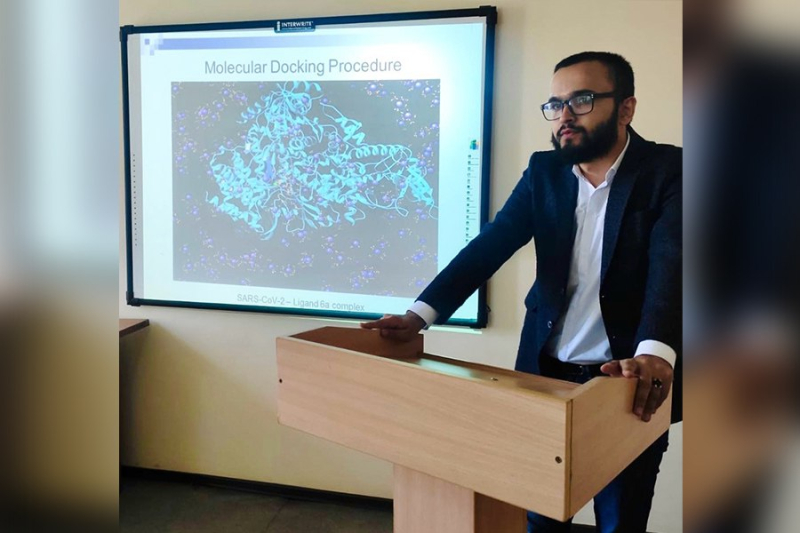
Saadiallakh plans to continue building his academic career at ITMO. Photo courtesy of the subject
What is your Master’s thesis about?
I am part of the group headed by Alexander Novikov, who is an expert in computational and quantum chemistry. I am trying to find correlations between different levels of approximation, and one of my main tasks is to accelerate the computational process to make it more accessible for regular PCs. Currently, if you want to perform computations with high levels of approximation, you need a supercomputer – otherwise, the process would take months. Improving this process is definitely a lofty goal, so I think my PhD thesis will also focus on this problem.
What are you planning to do after your graduation?
I’d like to keep working on my research and get my PhD degree in Russia. I am certain that I want to continue studying here because last year the Nobel Prize in Chemistry went to a graduate of the Leningrad school of chemistry. This speaks to the high level of science in Russia.
What do you think of the industry vs. academia debate?
You know, the head of my department in Kazakhstan used to say that those who can’t do anything in science go to work in the industry. I don’t know if that’s true, but I think you should work in the industry if you can truly make a significant contribution there. If you’ve already stayed at university long enough to get a Master’s degree, I think it’s only logical to keep on studying for a PhD and then do research. However, at the Infochemistry Scientific Center, you don’t need to choose – you actually have the opportunity to turn your research into applied solutions, if that’s what you are after.
What do you do in your free time?
The rare spare minutes I get, I spend reading. My current read is The Financier by Theodore Dreiser.
What are your impressions of ITMO?
I was really impressed with the way current PhD students treat us at the Master’s level. They always try to help without hesitation, despite their high workload. This was the thing that surprised me most in the first days. I think it has a lot to do with Dr. Skorb’s personality and organization. She is a very kind and open person and she has managed to create the same atmosphere at the center.
And what do you think of the city?
I can’t say I am interested in exploring it. You know, were I to study in Paris, I’d probably live the same way. I am more interested in doing research and talking to people.
What would you recommend to other students looking to get into ITMO?
I have some advice particularly for those who want to study at the Infochemistry Scientific Center. I’d recommend DMing their VK page – they are quick to reply and very helpful. I messaged them saying that I want to study there. They quickly replied and asked for my portfolio. They considered it for about 2-3 weeks and then messaged me saying that I fit their requirements. So, if you have a strong portfolio with publications and conferences, I’d recommend reaching them out in this way.
Also, at this stage you don’t need to have chosen your supervisor. In fact, it’s better not to, as at the start of the academic year all of them will present their projects. You will be able to choose what you like – maybe even a topic you haven’t worked with before!
